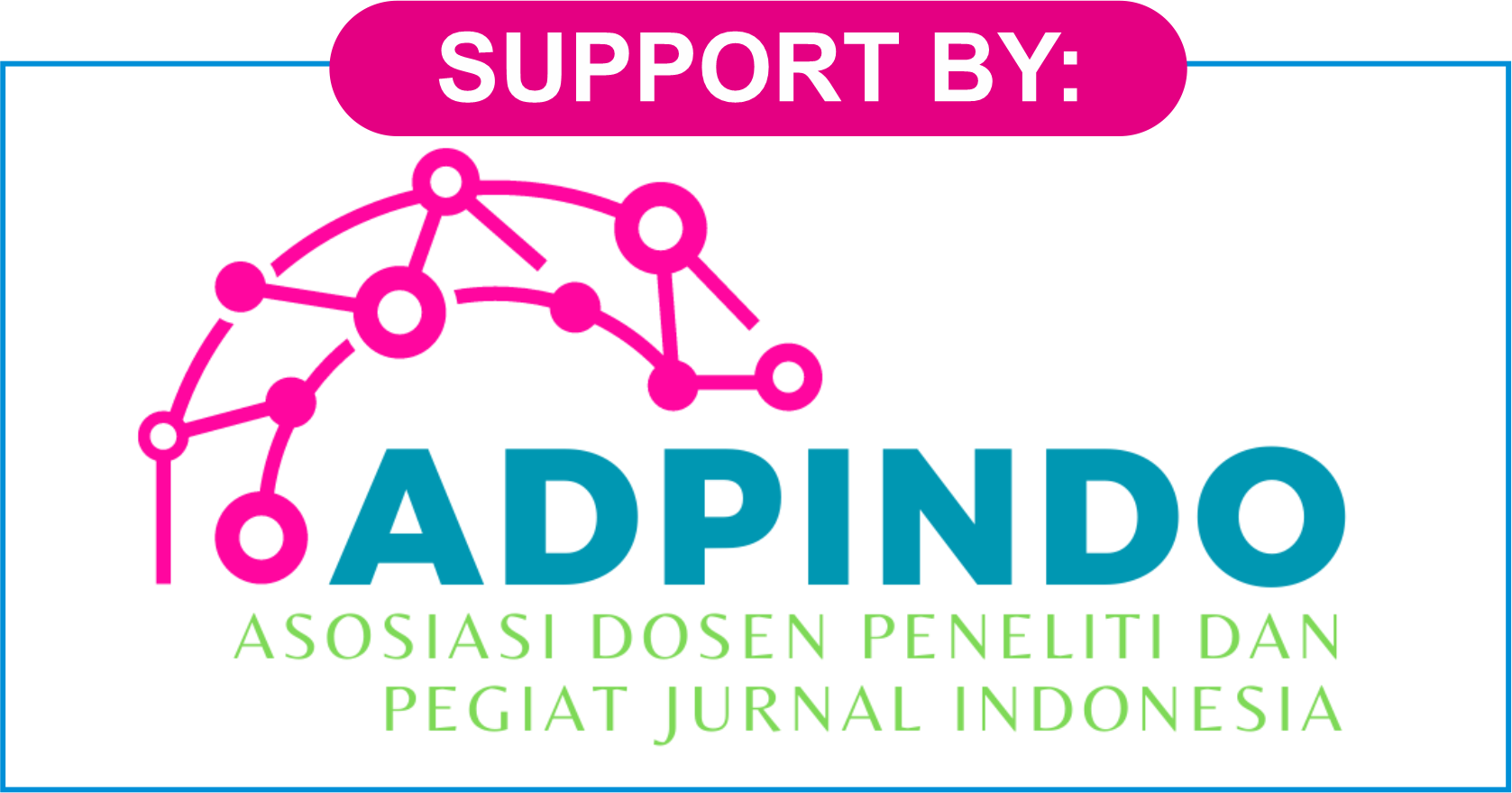HUBUNGAN ANTARA CAREGIVER BURDEN DENGAN SUBJECTIVE WELL-BEING PADA IBU GENERASI SANDWICH
DOI:
https://doi.org/10.47353/sikontan.v1i2.383Keywords:
sandwich generation, subjective well-being, caregiver burdenAbstract
Caring and providing financial support for two generations in one family is inseparable from declining psychological aspects, one of which is subjective well-being that affected from caregiver burden. It is important for sandwich generation who bear multiple demands, to maintain their subjective well-being in a good quality . Pearson’s correlation analysis was conducted in 81 sandwich generation mothers that leads to result of a significant negative correlation between caregiver burden and subjective well-being (r= -0,539; p < 0,05). This result explains that if the level of caregiver burden is increased, the it decreases the subjective well-being level.
Downloads
References
Abdollahpour, I., Nedjat, S., & Salimi, Y. (2018). Positive Aspects of Caregiving and Caregiver Burden: A Study of Caregivers of Patients With Dementia. Journal of Geriatric Psychiatry and Neurology, 31(1), 34–38. https://doi.org/10.1177/0891988717743590
Akhtar, H. (2019). Evaluasi Properti Psikometris Dan Perbandingan Mode Pengukuran Konstruk Subjective Well-being. Jurnal Psikologi (Vol. 1 No. 18)
Badan Pusat Statistik. (2022) Analisis Profil Penduduk Indonesia. Badan Pusat Statistik.
Diener, E. (2000). Subjective well-being: The science of happiness and a proposal for a national index. American Psychologist, 55(1), 34–43. https://doi.org/10.1037/0003-066X.55.1.34
Diener, E., Oishi, S., & Lucas, R. E. (2012). Subjective Well-Being: The Science of Happiness and Life Satisfaction. In The Oxford Handbook of Positive Psychology, (2 Ed.). Oxford University Press. https://doi.org/10.1093/oxfordhb/9780195187243.013.0017
Fauziana, R., Sambasivam, R., Vaingankar, J. A., Abdin, E., Ong, H. L., Tan, M. E., Chong, S. A., & Subramaniam, M. (2018). Positive Caregiving Characteristics as a Mediator of Caregiving Burden and Satisfaction With Life in Caregivers of Older Adults. Journal of Geriatric Psychiatry and Neurology, 31(6), 329–335. https://doi.org/10.1177/0891988718802111
Ferrante, S., & Derigne, L. (2012). The Sandwich Generation: A Review of the Literature. In Florida Public Health Review (Vol. 9).
Fianco, A., Sartori, R. D. G., Negri, L., Lorini, S., Valle, G., & Fave, A. D. (2015). The relationship between burden and well-being among caregivers of Italian people diagnosed with severe neuromotor and cognitive disorders. In Research in Developmental Disabilities (Vol. 39, pp. 43–54). Elsevier Inc. https://doi.org/10.1016/j.ridd.2015.01.006
Gillett, J. E., & Crisp, D. A. (2017). Examining coping style and the relationship between stress and subjective well-being in Australia’s ‘sandwich generation.’ Australasian Journal on Ageing, 36(3), 222–227. https://doi.org/10.1111/ajag.12439
Graessel, E., Berth, H., Lichte, T., & Grau, H. (2014). Subjective caregiver burden: Validity of the 10-item short version of the Burden Scale for Family Caregivers BSFC-s. BMC Geriatrics, 14(1). https://doi.org/10.1186/1471-2318-14-23
Hammer, L. B., & Neal, M. B. (2008). Working sandwiched-generation caregivers: Prevalence, characteristics, and outcomes. The Psychologist-Manager Journal, 11(1), 93–112. https://doi.org/10.1080/10887150801967324
Havilah, V. R. (2021). Hubungan Antara Kualitas Hidup dengan Beban Pengasuhan pada Wanita Generasi Sandwich. Skripsi.
Iqbal Malik, N., Professor of Psychology, A., Shakeel, S., Ahmad Rana, S., & Iqbal Malik, N. (2015). Burden of Care, Mental Health and Subjective Well Being of Family Caregivers of Elderly Patients. In Pakistan Journal of Professional Psychologists (Vol. 6, Issue 1).
Kusumaningrum, F. A. (2018). Generasi Sandwich: Beban Pengasuhan dan Dukungan Sosial pada Wanita Bekerja. Psikologika: Jurnal Pemikiran Dan Penelitian Psikologi, 23(2), 109–120. https://doi.org/10.20885/psikologika.vol23.iss2.art3
Lansford, J. E. (2018). A Lifespan Perspective on Subjective Well-Being. Salt Lake City, UT: DEF Publishers. DOI:nobascholar.com
LeSeure, P., & Chongkham-Ang, S. (2015). The experience of caregivers living with cancer patients: A systematic review and meta-synthesis. In Journal of Personalized Medicine (Vol. 5, Issue 4, pp. 406–439). MDPI AG. https://doi.org/10.3390/jpm5040406
Liu, Z., Heffernan, C., & Tan, J. (2020). Caregiver burden: A concept analysis. International Journal of Nursing Sciences, 7(4), 438–445. https://doi.org/10.1016/j.ijnss.2020.07.012
Lorca, M. B.F., & Lay, S. L. (2020). Multiple roles and subjective well-being of middle-aged women who are caregivers of elderly people in Chile. Journal of Women and Aging, 32(2), 149–167. https://doi.org/10.1080/08952841.2018.1537690
Marie Young, S. (2017). Investigation of Sandwich Generation Caregiver Perceptions and Factors of Caregiving Strain. https://thekeep.eiu.edu/theses/2711
Miller, D. A. (1980). The “sandwich” generation: adult children of the aging.
Noguchi, T., Nakagawa-Senda, H., Tamai, Y., Nishiyama, T., Watanabe, M., Kamiya, M., Wakabayashi, R., Hosono, A., Shibata, K., Ichikawa, M., Ema, K., Nagaya, K., Okamoto, N., Tsujimura, S., Fujita, H., Kondo, F., Yamada, T., & Suzuki, S. (2020). The association between family caregiver burden and subjective well-being and the moderating effect of social participation among japanese adults: A cross-sectional study. Healthcare (Switzerland), 8(2). https://doi.org/10.3390/healthcare8020087
Ong, H. L., Vaingankar, J. A., Abdin, E., Sambasivam, R., Fauziana, R., Tan, M. E., Chong, S. A., Goveas, R. R., Chiam, P. C., & Subramaniam, M. (2018). Resilience and burden in caregivers of older adults: Moderating and mediating effects of perceived social support. BMC Psychiatry, 18(1). https://doi.org/10.1186/s12888-018-1616-z
Piontak, J. R. (2016). Household Composition and Maternal Depression: Examining the Role of Multigenerational Households. Journal of Family Issues, 37(7), 947–969. https://doi.org/10.1177/0192513X14531678
Rochma, S. (2021). Hubungan antara Keberfungsian Keluarga dan Dukungan Sosial Teman Sebaya dengan Subjective Well-Being (Studi pada Remaja yang Mengalami Stres di Masa Pandemi COVID-19). Buletin Riset Psikologi dan Kesehatan Mental. http://e-journal.unair.ac.id/index.php/BRPKM
Savundranayagam, M. Y., Montgomery, R. J. V., Kosloski, K. (2011). A dimensional analysis of caregiver burden among spouses and adult children. Gerontologist, 51(3), 321–331. https://doi.org/10.1093/geront/gnq102
Sonia, G., Dewi, M., & Marheni, A. (2017). Perbedaan Subjective Well Being Pada Ibu Ditinjau Dari Struktur Keluarga Di Kota Denpasar (Vol. 4, Issue 1).
Tongson, E. C. (2018). What Does it Mean To Be in the Sandwich Generation? The Lived Experiences of Selected Low-income Urban Filipino Women: Vol. XXVIII.
Üzar-Özçeti̇n, Y. S., & Dursun, S. İ. (2020). Quality of life, caregiver burden, and resilience among the family caregivers of cancer survivors. European Journal of Oncology Nursing, 48. https://doi.org/10.1016/j.ejon.2020.101832
Verbakel, E., Metzelthin, S. F., & Kempen, G. I. J. M. (2018). Caregiving to older adults: Determinants of informal caregivers’ subjectivewell-being and formal and informal support as alleviating conditions. Journals of Gerontology - Series B Psychological Sciences and Social Sciences, 73(6), 1099–1111. https://doi.org/10.1093/geronb/gbw047
Watson, D., Clark, L. A., & Tellegen, A. (1988). Development and Validation of Brief Measures of Positive and Negative Affect: The PANAS Scales. In Journal of Personality and Social Psychology (Vol. 54, Issue 6).
Samudra, R., Wisana, I.D.G.K. (2016). Female Labor Force Participation of Sandwich Generation in Indonesia. The Abdul Latif Jameel Poverty Action Lab (J-PAL) Southeast Asia. https://www.researchgate.net/publication/315683538
Downloads
Published
How to Cite
Issue
Section
License
Copyright (c) 2022 Indira Khairunnisa, Nurul Hartini

This work is licensed under a Creative Commons Attribution 4.0 International License.











